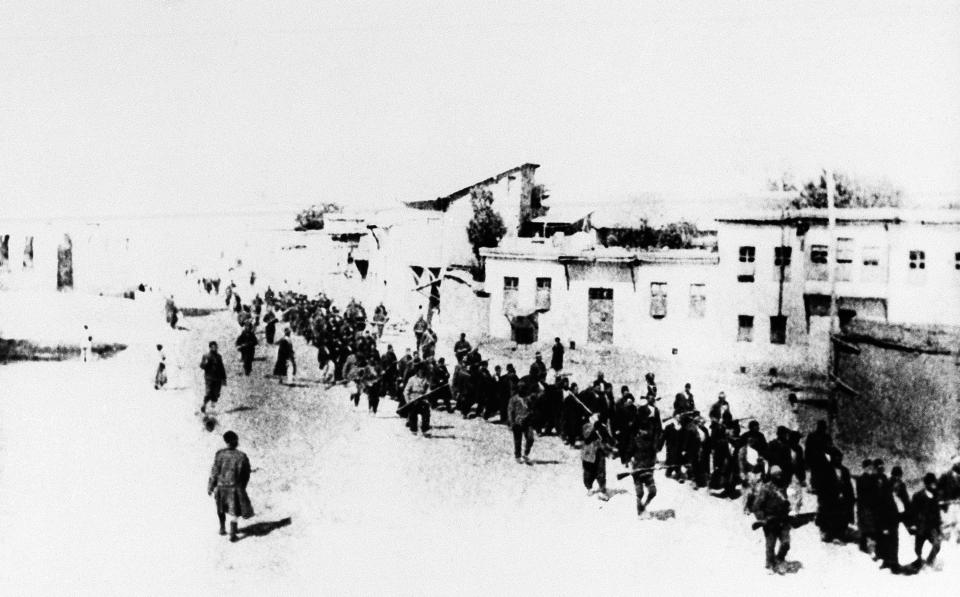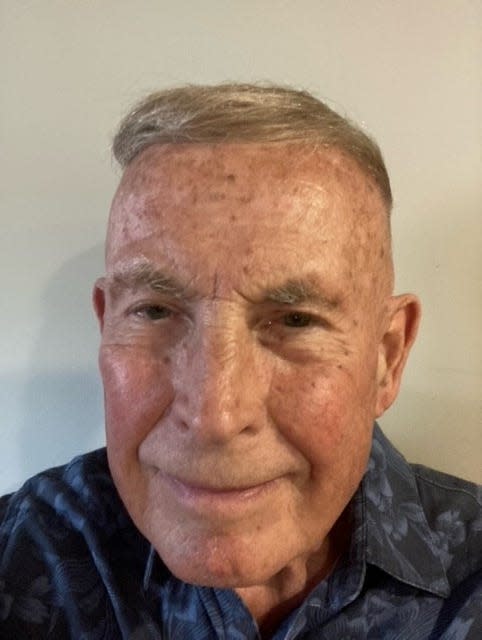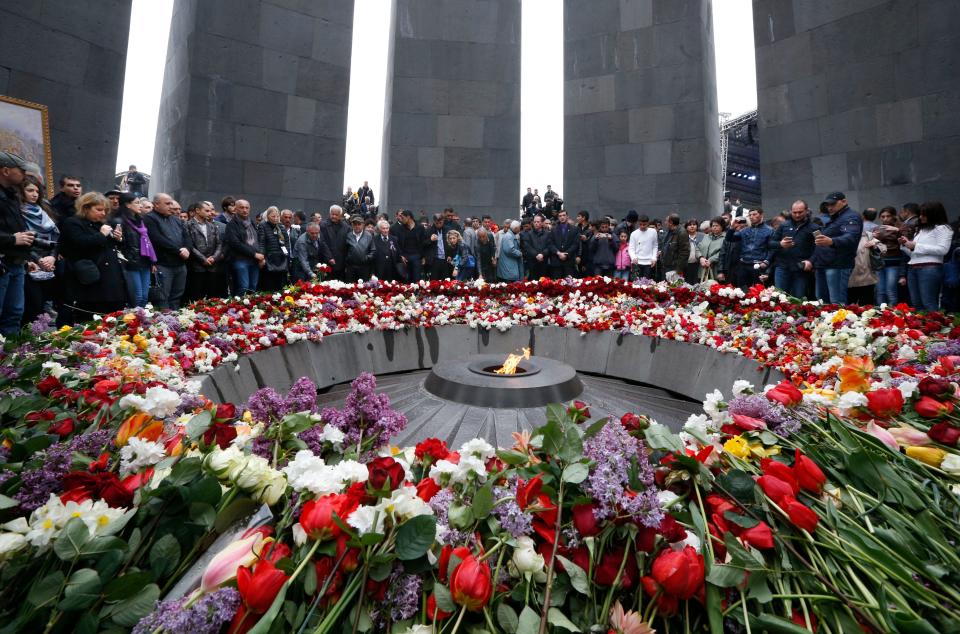'Forgotten Genocide' in Armenia must never be repeated anywhere | Opinion
“Who, after all, speaks today of the annihilation of the Armenians?” Adolf Hitler, in planning the 1939 invasion of Poland.
Yerevan, Armenia
We walked in silence, among thousands. As the procession moved uphill, I pondered what thoughts filled the minds of those around us. Perhaps of great-grandparents slaughtered in their ancestral villages by Ottoman Turks. Or of family members marched into the Syrian desert to die.
Reaching the hilltop, my wife and I passed into the memorial and laid our flowers atop a mass of others. Around us, others spoke in hushed voices the names of family victims of the Genocide, which began April 24, 1915. At least 1.5 million Armenians were massacred in the government-sponsored ethnic cleansing.

I first became aware of the Forgotten Genocide when presented an opportunity to prove it happened.
In 1973, Gourgen Yanikian, a 78-year-old Armenian, lured two Turkish diplomats to a Santa Barbara, California, hotel, then shot them to death. Yanikian’s victims were career diplomats with families, no more to blame for the Genocide than a German today would be for the Holocaust.

Your state. Your stories. Support more reporting like this.
A subscription gives you unlimited access to stories across Tennessee that make a difference in your life and the lives of those around you. Click here to become a subscriber.
Hear more Tennessee voices: Get the weekly opinion newsletter for insightful and thought-provoking columns.

But Yanikian, once respected and wealthy, now old, alone and impoverished, was seeking a final glory. His plan was to stage an “American Nuremberg,” a show trial like those held after World War II, to call world attention to the Forgotten Genocide. Yanikian was charged with murder, and as district attorney of Santa Barbara County, it was my duty to prosecute him.
A trial was scheduled, and defense counsel announced they would call as witnesses elderly Armenians who had survived the genocide. They sat silently in the courtroom, ready to recount unspeakable horrors.
Yanikian’s attorneys urged me to allow the testimony, which was legally inadmissible. One gave me a book about the Genocide. On the flyleaf he had written: “The tragedy in Santa Barbara has brought destiny and God to your doorstep,” and he urged me to “bring forth an indictment against genocide.” He added, “You stand to become an immortal symbol of justice around the world.”

This was heady stuff, and I faced a dilemma: To allow a parade of eyewitnesses testify to the horrors of the Genocide, risking an acquittal, or to block the evidence and obtain a conviction. I knew such evidence could lead to “jury nullification,” where a jury disregards the law and acquits for what they deem a greater justice.
I took the safer path and objected to the historic testimony. The judge sustained my objection, and the jury returned murder verdicts. Yanikian was denied his Armenian Nuremberg, and the Forgotten Genocide was never proven by survivor testimony in an American courtroom. The historical evidence is so abundant, however, that at least 32 nations have officially recognized and condemned it. Tennessee’s House of Representatives recognized it in 2015.
Armenian families everywhere bear the memory. I asked Father Abraham Ohanesian, who conducts services at Nashville’s Armenian Church, how many local Armenians might have lost relatives to the Genocide. He replied, “Every single family.” Ohanesian told me how his father, as a boy, witnessed the ax murder of his grandmother by a Turkish soldier and the death of his mother on a forced march into the desert. How his father’s sister was abducted by Turks and never seen again by her family. And how his father had witnessed a river “red with blood” of massacred countrymen.
The Armenian Genocide must not be forgotten. History’s darkest chapters, its genocides, should be fully exposed. By revealing the ultimate depravity of man, we can hope to ensure that such atrocities never reoccur.
David Minier of Spring Hill, Tennessee, is a former district attorney of California’s Santa Barbara and Madera counties and a retired judge of Madera County.
This article originally appeared on Nashville Tennessean: 'Forgotten Genocide' in Armenia must never be repeated anywhere

